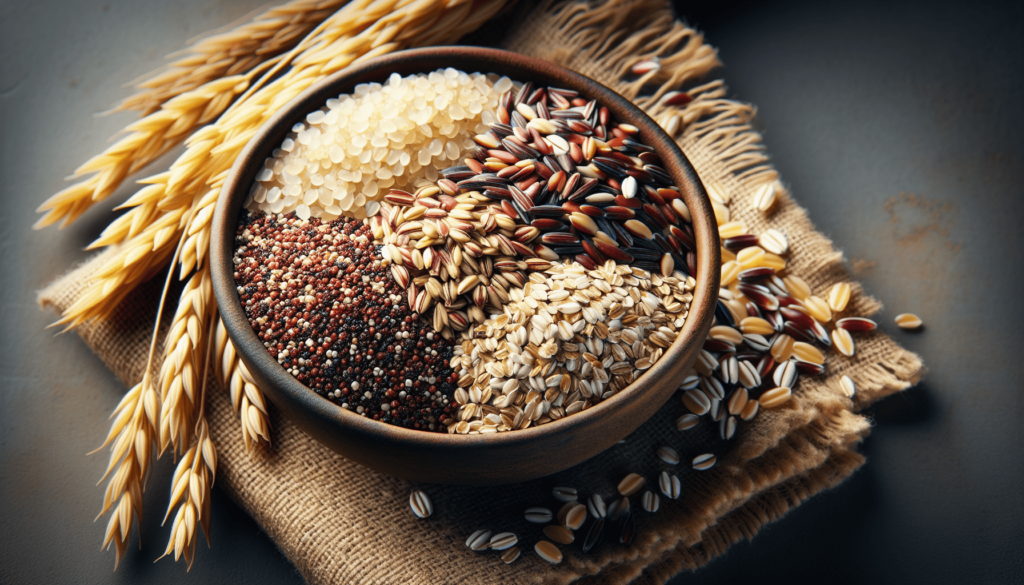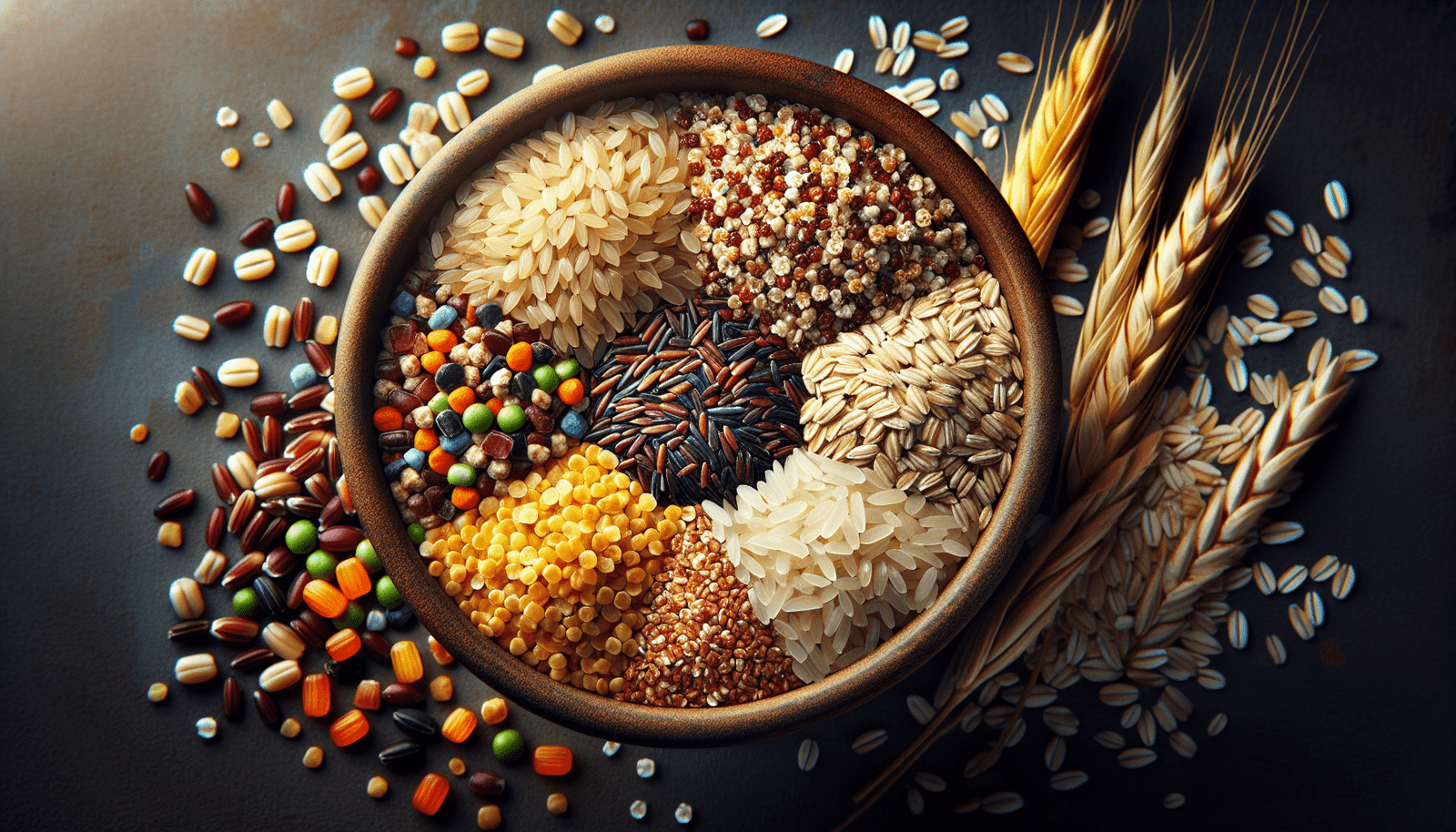Welcome to an insightful article on the potential benefits of incorporating whole grains into your diet to reduce the risk of developing colorectal cancer. Research suggests that consuming whole grains, such as brown rice, quinoa, and oats, may have a protective effect against this type of cancer. By making simple changes to your daily meals and snacks, you can potentially lower your risk and promote overall health. Keep reading to learn more about the power of whole grains in cancer prevention. Can whole grains help reduce the risk of developing colorectal cancer?
Understanding Colorectal Cancer
Before diving into the potential benefits of whole grains in reducing the risk of colorectal cancer, it’s essential to have a basic understanding of what colorectal cancer is and how it develops. Colorectal cancer is cancer that starts in the colon or rectum, and it is one of the most common types of cancer worldwide. It usually begins as a polyp, a small growth on the lining of the colon or rectum, that can turn into cancer over time if not removed.
The Role of Diet in Colorectal Cancer
Diet plays a crucial role in the development of colorectal cancer. Certain dietary factors can either increase or decrease the risk of developing this type of cancer. Foods that are high in red and processed meats, saturated fats, and added sugars have been linked to an increased risk of colorectal cancer. On the other hand, a diet rich in fruits, vegetables, fiber, and whole grains has been associated with a reduced risk of colorectal cancer.

What Are Whole Grains?
Whole grains are the entire seed of a plant, which includes the bran, germ, and endosperm. Examples of whole grains include whole wheat, brown rice, oats, quinoa, barley, and bulgur. These grains are rich in fiber, vitamins, minerals, and antioxidants, making them a nutritious choice for overall health.
The Fiber Connection
One of the key components of whole grains that may help reduce the risk of colorectal cancer is fiber. Fiber is the indigestible part of plant foods that passes through the digestive system relatively intact. There are two types of fiber: soluble fiber, which dissolves in water, and insoluble fiber, which does not dissolve in water. Whole grains contain both types of fiber, which can have a protective effect on the colon and may reduce the risk of colorectal cancer.

How Fiber Benefits the Colon
Fiber plays a crucial role in promoting overall digestive health, particularly in the colon. It helps to soften the stool, making it easier to pass through the colon and reducing the risk of constipation. Additionally, fiber adds bulk to the stool, which can help move waste products through the colon more efficiently. This can be beneficial in reducing the amount of time that potentially harmful substances are in contact with the cells lining the colon, which may decrease the risk of colorectal cancer.
The Relationship Between Whole Grains and Colorectal Cancer
Several studies have examined the relationship between whole grain consumption and the risk of developing colorectal cancer. While more research is needed to definitively establish a causal relationship, the evidence so far suggests that including whole grains in your diet may help reduce the risk of colorectal cancer.
A study published in the American Journal of Clinical Nutrition found that individuals who consumed higher amounts of whole grains had a lower risk of developing colorectal cancer compared to those who consumed lower amounts. The protective effect of whole grains may be attributed to their high fiber content as well as other beneficial nutrients such as vitamins, minerals, and antioxidants.
How to Incorporate Whole Grains Into Your Diet
If you’re looking to reduce your risk of developing colorectal cancer by including more whole grains in your diet, there are several simple ways to do so. Start by swapping out refined grains such as white bread, white rice, and pasta for whole grain alternatives. Choose whole grain breakfast cereals, whole grain bread, and whole grain pasta for a fiber-rich and nutrient-dense option.
Incorporate whole grains such as brown rice, quinoa, barley, and oats into your meals. You can also snack on whole grain options such as popcorn, whole grain crackers, and granola bars. Experiment with different types of whole grains to find what you enjoy the most and incorporate them into your regular meals and snacks.
Other Dietary Factors to Consider
While whole grains can play a role in reducing the risk of colorectal cancer, it’s essential to consider other dietary factors as well. Aim to include a variety of fruits and vegetables in your diet, as they are rich in vitamins, minerals, and antioxidants that can support overall health and reduce the risk of cancer. Limit your intake of red and processed meats, saturated fats, and added sugars, as these foods have been linked to an increased risk of colorectal cancer.
Conclusion
In conclusion, while more research is needed to confirm the relationship between whole grains and the risk of colorectal cancer definitively, the evidence so far suggests that including whole grains in your diet may help reduce the risk of developing this type of cancer. Whole grains are rich in fiber and other beneficial nutrients that can support overall health and promote digestive health. By incorporating whole grains into your diet and maintaining a healthy, balanced diet overall, you can take steps to reduce your risk of colorectal cancer and support your overall well-being.

